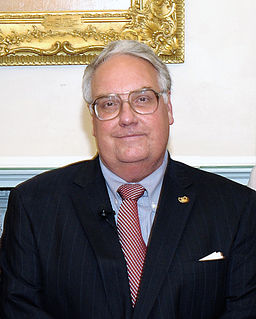A Quote by Jeremy Rifkin
The public should know that the liability issues here have yet to be resolved, or even raised. If you're a farmer and you're growing a genetically engineering food crop, those genes are going to flow to the other farm.
Related Quotes
Many families participate in the Community Supported Agriculture movement, which allows a family to buy shares in a farmer's produce so that they know where their food is coming from, and they can take their families out and see the farm and meet the farmer. That movement has helped create a new culture around food.
The farmer and the farm, like "the environment," are looked upon, for example, as means to offset trade deficits. The farm is a place where we can externalize costs. The cost of pesticides to the farmer and the cost of the pesticides to the soil and groundwater are regarded similarly by the public: "a serious problem that something ought to be done about." But the problem is more fundamental than this glib statement would indicate, for soil pollution is an expense of production. So are pesticides and nitrates in our farm wells. So is the loss of farmers from the land.
A farm includes the passion of the farmer's heart, the interest of the farm's customers, the biological activity in the soil, the pleasantness of the air about the farm -- it's everything touching, emanating from, and supplying that piece of landscape. A farm is virtually a living organism. The tragedy of our time is that cultural philosophies and market realities are squeezing life's vitality out of most farms. And that is why the average farmer is now 60 years old. Serfdom just doesn't attract the best and brightest.
Approximately 82% of the American people believe labeling should take place with regard to genetically engineered ingredients. All over this country people are increasingly concerned about the quality of the food they are ingesting and the food they are giving to their kids. People want to know what is in their food, and I believe that is a very reasonable request.
In the U.S., African- Americans, no matter what we do - when we sit in, when we freedom ride, when we kneel in, whatever it is, the initial response from the public tends to be overwhelmingly negative, because basically we're kind of raining on folks' parades. As time goes on, the Muhammad Ali's and all the people that raised those issues, they then become heroes later when people reflect on the courage they showed and the issues that they raised. And Donald Trump is in danger of being a more and more reviled figure as the years go on.
What the new fertilizer technology has accomplished for the farmer is clear: more crop can be produced on less acreage than before. Since the cost of fertilizer, relative to the resultant gain in crop sales, is lower than that of any other economic input, and since the Land Bank pays the farmer for acreage not in crops, the new technology pays him well. The cost-in environmental degradation-is borne by his neighbors in town who find their water polluted. The new technology is an economic success-but only because it is an ecological failure.
Conflicts, even of long standing duration, can be resolved if we can just keep the flow of communication going in which people come out of their heads and stop criticizing and analyzing each other, and instead get in touch with their needs, and hear the needs of others, and realize the interdependence that we all have in relation to each other. We can't win at somebody else's expense. We can only fully be satisfied when the other person's needs are fulfilled as well as our own.





































